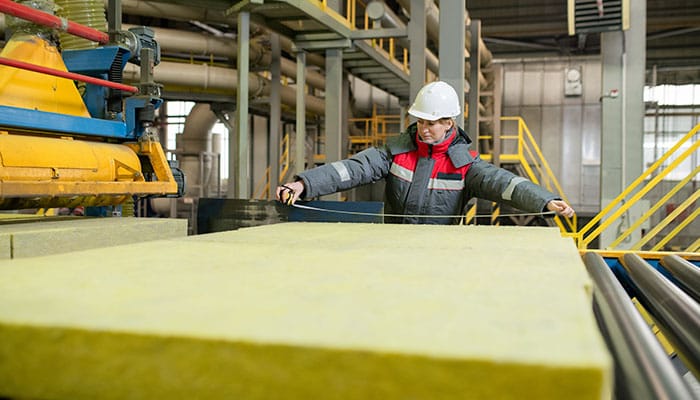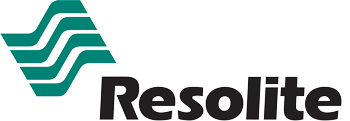Polyester is one of the most widely used synthetic materials and offers versatility, durability, and resistance to your construction products. It is used in industries ranging from construction and transportation to textiles and home improvement. As a thermosetting plastic, polyester is known for its structural strength, resistance to chemicals, and adaptability for reinforced composites. These properties make it a great option for applications requiring long-term performance, low maintenance, and reliability under extreme conditions.
Among the many uses of polyester, unsaturated polyester resins stand out with the ability to form high-strength panels reinforced with fiberglass. Stabilit America’s Polylit panels are a great example of how polyester materials can be engineered for construction and industrial use, offering UV stability, impact resistance, and energy efficiency.
What Is Polyester?
Polyester is a synthetic polymer that is derived from petroleum-based chemicals. Chemically, it is composed of ester functional groups within its molecular structure, which contribute to its strength, flexibility, and resistance to degradation. The chemical formula of polyester varies depending on its type, but the most common form is polyethylene terephthalate (PET).
This polymerization of terephthalic acid and ethylene glycol results in a material that can be engineered into fibers, sheets, and reinforced panels. The unsaturated polyester resins (UPRs) used in construction applications differ from standard polyester fabrics, as they are combined with fiberglass to create durable, corrosion-resistant, and high-strength composites.
Applications of Polyester Material in Construction and Industry
Polyester’s versatility extends beyond fabric production. Unsaturated polyester resins are used in reinforced panels, transportation infrastructure, and high-performance building materials.
Polyester Panels for Roofing and Siding
Polyester panels, including Polylit panels from Stabilit America, provide natural light transmission while maintaining structural integrity. These panels are commonly used in:
- Greenhouses: Allowing maximum sunlight penetration while protecting against UV degradation.
- Pre-engineered metal buildings: Lightweight and impact-resistant solutions for commercial structures.
- Post-frame buildings: Durable and easy-to-install options for agricultural and industrial applications.
With high impact resistance, corrosion protection, and UV stabilization, our panels support sustainable construction efforts while offering cost-effective installation.
Concrete Overlays (PCO) in Infrastructure
Transportation companies use unsaturated polyester concrete overlays to reinforce roads and bridges. These overlays provide:
- Enhanced structural strength
- Resistance to moisture and chemicals
- Long-term durability in high-traffic areas
Their weather-resistant properties make them a practical choice for extending the lifespan of transportation networks.
Wall Panels for Commercial and Industrial Use
Polyester-based FRP panels can be installed in commercial kitchens, restrooms, and food processing facilities thanks to their:
- Washable, non-porous surfaces
- Resistance to mold, mildew, and bacteria
- Low maintenance and easy cleaning
You can install these panels over drywall, concrete, or wood. They are an efficient wall protection solution in high-traffic environments.
Advantages of Polyester in Industrial Applications
Polyester materials have great performance benefits, making them essential in construction, transportation, and infrastructure projects. Some of the major advantages of our panels include:
Strength and Durability
Unsaturated polyester resins provide exceptional tensile and bending strength. They are perfect for load-bearing structures and reinforced composites.
Heat and Chemical Resistance
Unlike traditional materials that degrade under extreme conditions, polyester resins are resistant to heat and chemicals. As a result, this reduces the risk of material breakdown in industrial settings.
Water Repellency and Corrosion Resistance
Polyester is also naturally water-repellent, which prevents moisture infiltration in construction materials. When reinforced with fiberglass, it offers enhanced protection against corrosion and weathering.
Polyester Fabric: Benefits and Limitations
Polyester has distinct advantages and disadvantages depending on the application.
Is Polyester Fabric a Good Material?
Polyester fabric is valued for its:
- Durability: It resists shrinking, stretching, and tearing.
- Moisture-Wicking Properties: It dries quickly, protecting your structures from moisture.
- Affordability: Lower production costs make it a budget-friendly choice.
What Are the Negatives of Polyester Fabric?
Despite its benefits, polyester does have some drawbacks, including:
- Heat Retention: Polyester traps heat, which can make it less breathable.
- Environmental Concerns: Polyester is a synthetic material that contributes to microplastic pollution if it is not properly recycled.
Does Polyester Shrink?
Unlike natural fibers, polyester is highly resistant to shrinking. However, exposure to high heat in industrial settings can cause slight shrinkage or deformation.

Polylit Panels: Reinforced Polyester for High-Performance Construction
Stabilit America’s Polylit panels show just how effective unsaturated polyester resins can be for durability and efficiency. Designed for light transmission and structural reinforcement, these panels offer:
- UV Stabilization: Long-term exposure to sunlight causes material degradation, but Polylit panels utilize UV-stabilized polyester resin to prevent yellowing, brittleness, and loss of light transmission. This helps ensure that the panels maintain optical clarity and structural integrity even in demanding outdoor environments.
- Impact Resistance: Harsh weather conditions and mechanical stress can compromise standard materials, but these panels feature a high strength-to-weight ratio that allows them to absorb impact without cracking or breaking. Their tough surface resists scratches and abrasions, making them well-suited for areas exposed to debris, hail, and other environmental stressors.
- Energy Efficiency: By allowing natural light to pass through while maintaining durability, Polylit panels reduce the need for artificial lighting in both residential and commercial projects. This helps lower electricity consumption and also the indoor portion of your building by creating well-lit, visually comfortable spaces without excessive glare.
Polylit panels are available in various shapes to accommodate diverse building designs, making them a reliable choice for both new construction and retrofitting projects.
The Role of Polyester in Modern Construction
Polyester is a high-performance material. Whether used in reinforced polyester panels, infrastructure overlays, or commercial wall systems, polyester-based materials offer durability, chemical resistance, and structural stability. At Stabilit America, our Polylit panels showcase the engineering capabilities of unsaturated polyester resins, providing a cost-effective, sustainable, and long-lasting solution for various industrial and architectural projects. For more information on how Polylit panels can improve your building designs and construction projects, contact our team at Stabilit America today.


